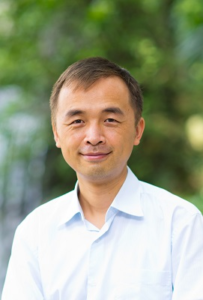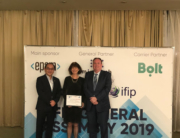Mark Horowitz Receives ACM-Eckert-Mauchly Award
 ACM and the IEEE Computer Society have named Mark Horowitz, a Professor at Stanford University, as the recipient of the 2022 ACM-IEEE CS Eckert-Mauchly Award for contributions to microprocessor memory systems.
ACM and the IEEE Computer Society have named Mark Horowitz, a Professor at Stanford University, as the recipient of the 2022 ACM-IEEE CS Eckert-Mauchly Award for contributions to microprocessor memory systems.
Horowitz was the first to identify the processor to dynamic random-access memory (DRAM) interface as a key bottleneck that required architecture and circuit optimisation.
He pioneered high-bandwidth DRAM interfaces. In addition, modern DRAM interfaces such as SDDR and LPDDR were strongly influenced by his techniques.
The Eckert-Mauchly Award is known as the computer architecture community’s most prestigious award. It is co-sponsored by ACM and IEEE Computer Society and comes with a $5,000 prize. Horowitz was formally recognised with the award at the ACM/IEEE International Symposium on Computer Architecture (ISCA), which was held virtually from June 18-22.
Cornell University Graduate Manish Raghavan Receives ACM Doctoral Dissertation Award
 Manish Raghavan is the recipient of the 2021 ACM Doctoral Dissertation Award for his dissertation “The Societal Impacts of Algorithmic Decision-Making.”
Manish Raghavan is the recipient of the 2021 ACM Doctoral Dissertation Award for his dissertation “The Societal Impacts of Algorithmic Decision-Making.”
Raghavan’s dissertation makes significant contributions to the understanding of algorithmic decision making and its societal implications, including foundational results on issues of algorithmic bias and fairness.
Honorable Mentions go to Dimitris Tsipras for his dissertation “Learning Through the Lens of Robustness,” and to Pratul Srinivasan and Benjamin Mildenhall jointly for Srinivasan’s dissertation, “Scene Representations for View Synthesis with Deep Learning and Mildenhall’s dissertation, “Neural Scene Representations for View Synthesis.”
Presented annually to the author(s) of the best doctoral dissertation(s) in computer science and engineering. The Doctoral Dissertation Award is accompanied by a prize of $20,000, and the Honorable Mention Award is accompanied by a prize worth $10,000. Winning dissertations will be published in the ACM Digital Library as part of the ACM Books Series.
View ACM’s 75th Anniversary Panels and Talks On Demand
 ACM’s 75th Anniversary Celebration took place at the Palace Hotel in San Francisco on 10 June 2022.
ACM’s 75th Anniversary Celebration took place at the Palace Hotel in San Francisco on 10 June 2022.
This notable occasion was not only a remembrance of ACM’s past, but of its current and future endeavours.
A full day of panel discussions focused on some of the most recent developments in the field of computing including Balancing Trust and Risk, Incentives and Markets, Connecting Everyone Everywhere All the Time, Human-Centered AI, and Global Impact.
Learn more and watch the celebration, talks, and panels in full here.
Register for Episode 10 of ACM-W Celebrating Technology Leaders
 By highlighting successful technical women who are leading diverse careers in the technology industry, ACM-W’s webinar series, “Celebrating Technology Leaders,” aims to inform students and early-career professionals about the multitude of career options open to them. Register now for Episode 10, “Blockchain Technology: What’s the Big Deal?” taking place July 20, 12 pm Pacific Daylight Time (PDT) with Bushra Anjum hosting a panel of experts on the subject: Lisa Calkins (HalfBlast Studios), Tatiana Zander (Ericsson), and Aneet Anjum (Digiwrite).
By highlighting successful technical women who are leading diverse careers in the technology industry, ACM-W’s webinar series, “Celebrating Technology Leaders,” aims to inform students and early-career professionals about the multitude of career options open to them. Register now for Episode 10, “Blockchain Technology: What’s the Big Deal?” taking place July 20, 12 pm Pacific Daylight Time (PDT) with Bushra Anjum hosting a panel of experts on the subject: Lisa Calkins (HalfBlast Studios), Tatiana Zander (Ericsson), and Aneet Anjum (Digiwrite).
Blockchain technology is a mysterious topic for many. Is it a network? A database? A cryptography algorithm? Is it the same as cryptocurrency? We aim to demystify blockchain technology, talk about the core concepts, and learn how to differentiate blockchain hype from reality. We will also explore what problems are good candidates to be solved with this emerging technology.
To watch the previous webinars, visit the YouTube playlist.
ACM ByteCast: Shyam Gollakota
 In this episode of ACM ByteCast, Rashmi Mohan hosts 2020 ACM Grace Murray Hopper Award recipient Shyam Gollakota. He is a Torode Professor and leads the Networks and Mobile Systems Lab at the University of Washington’s Paul G. Allen School of Computer Science & Engineering
In this episode of ACM ByteCast, Rashmi Mohan hosts 2020 ACM Grace Murray Hopper Award recipient Shyam Gollakota. He is a Torode Professor and leads the Networks and Mobile Systems Lab at the University of Washington’s Paul G. Allen School of Computer Science & Engineering
Shyam, who didn’t know how to type on a keyboard until the age of 16, relates how he got into CS and discovered that more than just programming, it’s also a toolkit people can use to build systems like an artist and solve some of the world’s most pressing problems. He describes his work around the ambient backscatter, which uses existing radio frequency signals to power devices, and wind dispersal powered devices (and how the common dandelion provided inspiration for this research).
Shyam and Rashmi also talk about his work on devices used for sleep apnea and tracking and the broader promise of ubiquitous computing in healthcare, such as democratising medical attention to areas that don’t have the same resources as the Western world. Finally, Shyam gives some insights into the entrepreneurial journey and looks toward the future of healthcare technology.
Listen here or wherever you get podcasts.
Apply for ACM Europe Summer School on HPC
 The 2022 ACM Europe Summer School on “HPC Computer Architectures for AI and Dedicated Applications” will take place 29 August – 2 September.
The 2022 ACM Europe Summer School on “HPC Computer Architectures for AI and Dedicated Applications” will take place 29 August – 2 September.
It will be hosted by the Barcelona Supercomputing Center (BSC-CNS) and the Universitat Politècnica de Catalunya (UPC). This edition of the school will take place in-person in Barcelona.
The summer school is open to young computer science researchers and engineers, outstanding MSc students, and senior undergraduate students. Accepted participants will attend formal lectures and practical hands-on sessions. Application deadline is 1 July 2022.
EPFL’s James Larus Named Editor-in-Chief of Communications of the ACM
 James Larus, a Professor and former Dean of the School of Computer and Communication Sciences at EPFL (École Polytechnique Fédérale de Lausanne), has been named Editor-in-Chief of Communications of the ACM.
James Larus, a Professor and former Dean of the School of Computer and Communication Sciences at EPFL (École Polytechnique Fédérale de Lausanne), has been named Editor-in-Chief of Communications of the ACM.
Widely regarded as the leading print and online publication for the computing and information technology fields, Communications of the ACM was established in 1958 and today reaches a monthly readership of more than 100,000 worldwide.
As Editor-in-Chief, Larus will work with the magazine’s editorial board and staff to shape the strategic vision of the publication, plan its content, and find new ways to strengthen the monthly magazine’s relevance and influence.
In addition to his role as Professor, Larus serves as Director of EPFL’s Very-Large Scale Computing Lab (VLSC). He is especially known for creating SPIM, a MIPS processor simulator, and for his work in efficient path profiling. Larus has published over 100 papers (with nine best and most influential paper awards), received over 40 US patents, and is co-author of the book Transactional Memory. His honors include receiving a National Science Foundation Young Investigator Award and being selected as an ACM Fellow for contributions to programming languages, compilers, and computer architecture.
Featured ACM Member: Éva Tardos
 Éva Tardos is a Professor and Chair of the Department of Computer Science at Cornell University and is one of the most influential leaders in the field of theoretical computer science.
Éva Tardos is a Professor and Chair of the Department of Computer Science at Cornell University and is one of the most influential leaders in the field of theoretical computer science.
She has authored more than 100 publications on topics including approximation algorithm and algorithm design for optimisation problems as well as network planning and design. Her honors include receiving the IEEE John von Neumann Medal, the Fulkerson Prize, the George B. Dantzig Prize, the Van Wijngaarden Award, and the Gödel Prize.
From 2015 until 2021, she served as Editor-in-Chief of the Journal of the ACM (JACM), ACM’s flagship journal covering the most significant work on the principles of computer science. Tardos was named the 2022–2023 ACM Athena Lecturer for fundamental research contributions to combinatorial optimisation, approximation algorithms, and algorithmic game theory, and for her dedicated mentoring and service to these communities.
In her interview, Tardos discusses what led her to a career in computer science, the influence of social networks, and her time as Editor-in-Chief of the Journal of the ACM.
Featured ACM Member: Thomas Zimmermann
 Thomas Zimmermann is a Senior Principal Researcher in the Productivity and Intelligence and Software Analysis and Intelligence groups at Microsoft Research. His research interests include software engineering, data science, and recommender systems. He is known for the systematic mining of software data to build tools to increase productivity of software engineers and managers.
Thomas Zimmermann is a Senior Principal Researcher in the Productivity and Intelligence and Software Analysis and Intelligence groups at Microsoft Research. His research interests include software engineering, data science, and recommender systems. He is known for the systematic mining of software data to build tools to increase productivity of software engineers and managers.
Zimmermann is the Chair of the ACM Special Interest Group on Software Engineering (SIGSOFT). He has received numerous awards, including seven Ten Year Most Influential Paper awards at various conferences as well as five SIGSOFT Distinguished Paper Awards.
He was recently named an ACM Fellow for contributions to mining software repositories and defect prediction. In his interview, Zimmermann talks about his current projects, the changing field of mining repositories, and his theories on software productivity.
Featured ACM Distinguished Speaker: Minming Li
 Minming Li is a Professor in the Department of Computer Science, City University of Hong Kong. He received his PhD and BE degree in the Department of Computer Science and Technology at Tsinghua University in 2006 and 2002 respectively.
Minming Li is a Professor in the Department of Computer Science, City University of Hong Kong. He received his PhD and BE degree in the Department of Computer Science and Technology at Tsinghua University in 2006 and 2002 respectively.
His research interests include algorithmic game theory, combinatorial optimisation and algorithm design and analysis for scheduling problems, as well as consistently working on the theoretical aspects of computer science with a wide scope of application backgrounds.
He was a recipient of Teaching Excellence Award given by City University of Hong Kong, and his lecture topics include “Defending With Shared Resources on a Network,” and “Facility Location Games: From Origin to Recent Development.” Li is available to speak on these topics through the ACM Distinguished Speaker Program.





